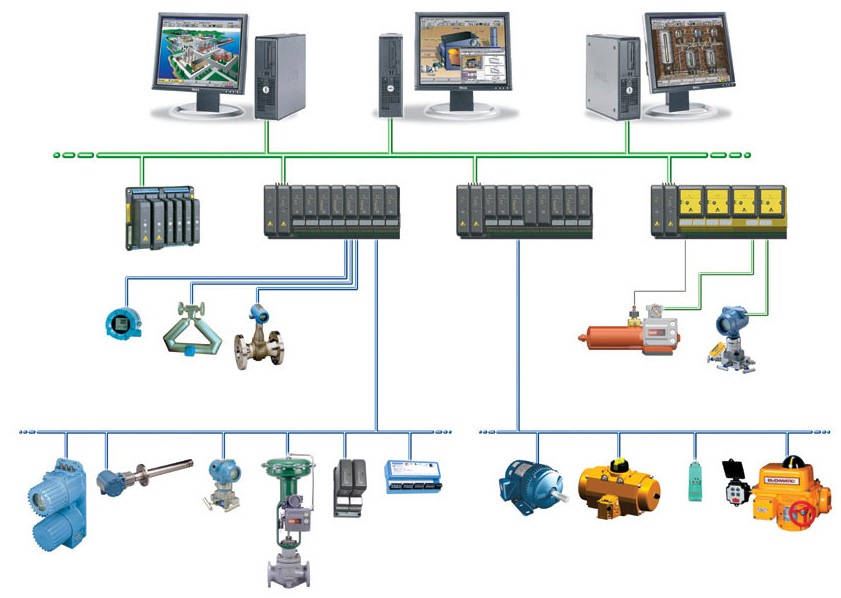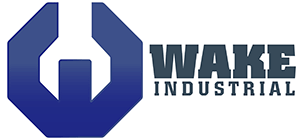What is a DCS System and what are its advantages?
1 June, 2020 | Industrial, Industrial Manufacturing, Engineer, Engineering, Industrial Engineering, DCS System, Computer Science

What is a DCS system and what are its advantages?
It’s almost unheard of to walk into a modern plant or production facility and not find an automated control system of some sort. These interconnected networks of computers and sensors help keep things running when there are too many simultaneous tasks for human supervisors to observe.
A distributed control system (DCS), sometimes called a decentralized control system, is one of the most popular types of controllers. Closely related but uniquely different from a programmable logic controller (PLC), DCSs are a crucial part of the automation industry.

What is a DCS?
Many people often confuse PLCs and DCSs. That’s an understandable mistake as the two are both very important to automation. Interestingly, DCSs emerged from the need to control an entire plant at once—not just a single process.
They are comprised of sensors, controllers, and computers that are distributed throughout a factory or plant. These units are connected by the plant’s local network. DCSs work within a multi-level framework with small components like sensors and motors feeding upwards towards a computing center that monitors the entire plant. In between these two points are supervisory computers and coordinating computers that help consolidate and process data.
Ultimately, the DCS serves as a sort of central “brain” for a facility. Based on the trends it observes in real-time from throughout a plant, the system can then make decisions to keep things running at maximum efficiency. In the world of industrial automation, this is a must.
How Does a DCS Work?
An ordinary PLC excels at making adjustments to one system or process at a time. For instance, it could adjust the speed of a single turbine at a power plant after seeing an increased demand for energy. By comparison, a DCS is able to adjust every interacting process to rapidly scale an entire power plant’s operations in response to that increased demand.
Due to their sweeping abilities, DCSs are typically found in large manufacturing plants. Those involved in the industrial manufacturing field know that a production line is made of a million pieces that need to work in perfect harmony. A DCS efficiently manages the minute-by-minute adjustments that are needed to keep the system working at its highest capacity.
When the DCS determines that a change needs to be made, it feeds commands throughout a plant. Any controllers involved in the change receive them and are adjusted accordingly. This downhill flow of information allows the system to regulate an entire facility's operations.

Why is a DCS so Important?
As mentioned, greater efficiency is crucial in the industrial automation sector. DCSs help achieve that. Once a DCS is set up properly it can take over the monitoring roles of hundreds of human employees. At a large facility that eliminates the potential for costly errors while simultaneously speeding up response times. If an issue is detected the entire system can be adjusted without human employees needing to step in. Since the DCS can autonomously adjust a plant’s controllers it can keep things running around the clock. It operates like a seasoned operator without the need for decades of on-the-job training.
Moreover, a DCS can be a valuable safety asset in a facility. Since the automated system doesn’t get distracted by non-essential data and operator mistakes, it makes better decisions. In turn, that increases safety.
The future is going to bring heavier reliance on automation across every industry. From manufacturing to waste management, automation is revolutionizing how things get done. However, bottlenecking it with a system that isn’t integrated with every process of a plant is of the past. With DCSs, companies are able to get instant automated decisions about every aspect of their facilities to increase efficiency and safety.
- Call: 1-888-551-3082
- International: 1-919-443-0207
- Fax: 1-919-867-6204
- Email: sales@wakeindustrial.com
- Address:
- 1620 Old Apex Rd
- Cary, NC 27513










